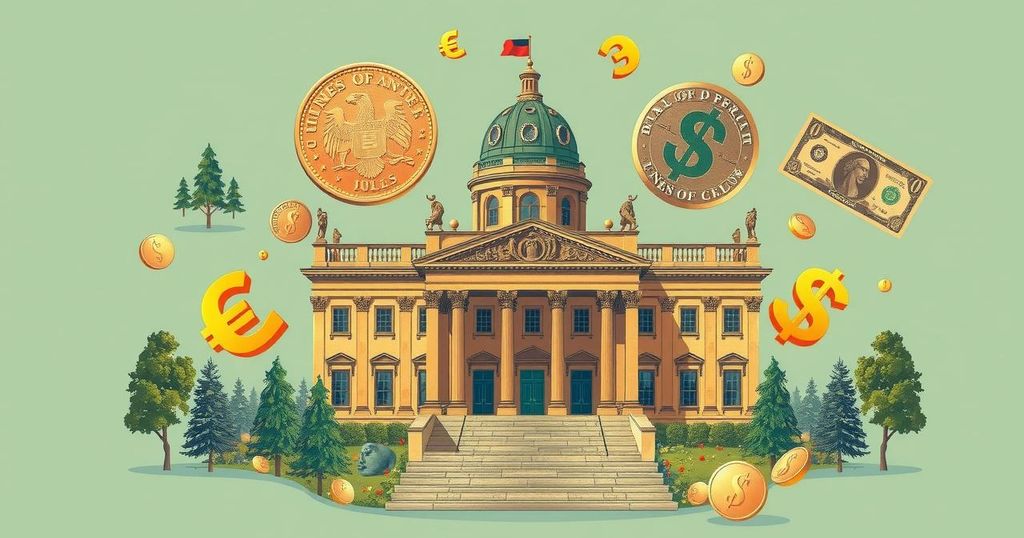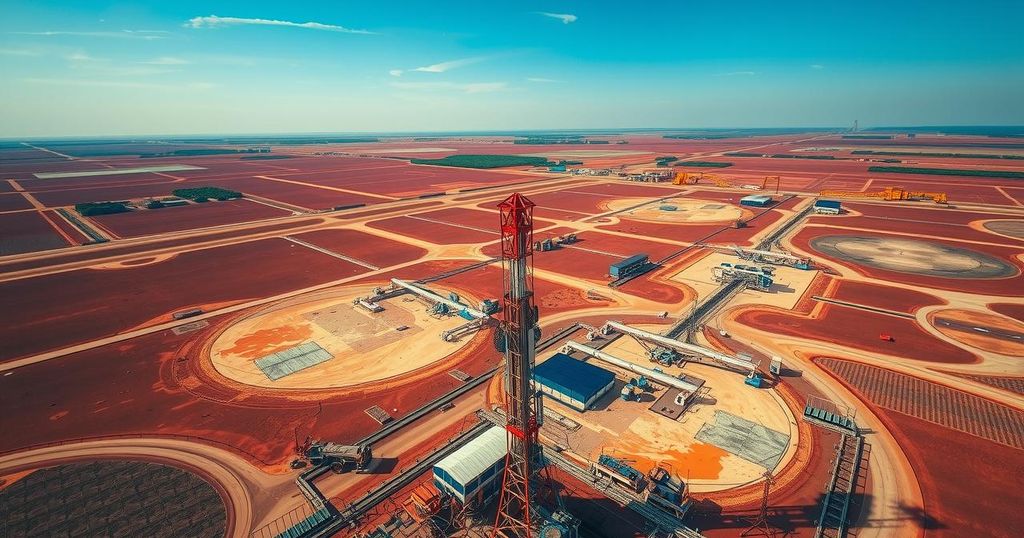Argentina Advances Efforts to Secure IMF Program through Decree
Argentina is moving forward to formalize an IMF program via a decree aimed at securing vital financial support. President Javier Milei’s government has enacted austerity measures but requires further resources to manage debt and inflation. The potential Extended Fund Facility could provide crucial funds for settling Treasury debts. As legislative elections approach, securing IMF support is critical for Milei’s economic agenda and political future.
Argentina’s government is actively pursuing the formalization of an International Monetary Fund (IMF) program through a decree of necessity and urgency (DNU), as published in the official gazette. This initiative is anticipated to provide vital financial assistance to help meet debt obligations and potentially lift capital controls, as reported by Reuters.
Under President Javier Milei’s administration, Argentina has adopted stringent austerity measures aimed at reducing fiscal deficits and addressing high inflation levels. However, additional financial resources are essential to continue these reforms, especially given the country’s negative central bank reserves and upcoming significant debt repayments.
The decree, released on March 11, states, “To ensure economic stability, it is imperative to urgently reduce a significant portion of the National State’s debt to the central bank (BCRA), thereby improving its financial position and international reserves liquidity.” The planned Extended Fund Facility (EFF) is set to feature a 10-year repayment period, with a grace period of 4.5 years.
The decree suggests that newly allocated funds will be directed at settling Treasury debt with the central bank, although it omits details regarding the program’s total size. Financial analysts from firms such as UBS Group AG, Morgan Stanley, and Bank of America Corp. estimate the loan range could be between $5 billion to $20 billion.
Furthermore, President Milei has solicited lawmakers’ approval for the proposed IMF loan agreement. The decree plays a crucial role in his strategy to facilitate the IMF deal’s passage through Congress, indicating that an agreement may soon be reached. Argentina currently owes approximately $44.5 billion to the IMF, arising from a Stand-By Arrangement established in 2018 during a turbulent economic period.
The country also entered an Extended Fund Facility (EFF) agreement in 2022 which concluded last September. Milei has asserted that the new, under-negotiation IMF agreement will stabilize the central bank and ultimately eliminate inflation. In an op-ed featured in La Nacion, he pointed out that the upcoming deal will allow the government to settle its debts with the central bank, addressing a key factor contributing to persistent inflation.
As Argentina approaches mid-term legislative elections later this year, the success of Milei’s economic strategies and his political future may depend significantly on acquiring IMF support, as he strives to uphold economic recovery while garnering electoral backing for his party.
In summary, Argentina is seeking to formalize a new IMF program that could provide essential financial support amid ongoing economic challenges. Under President Javier Milei, the nation aims to stabilize its economy through austerity measures. The forthcoming IMF agreement is crucial not only for economic recovery but also for the president’s political future, as it coincides with impending legislative elections.
Original Source: www.bne.eu




Post Comment